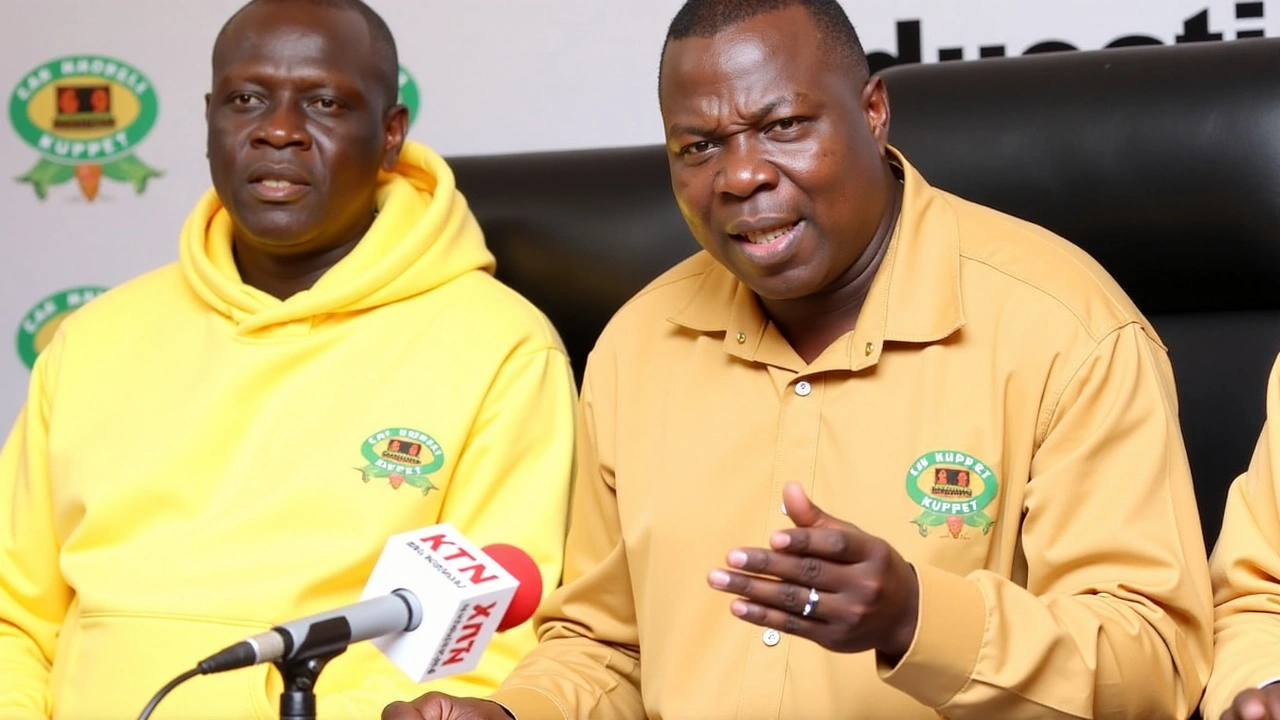Kuppet's Call for Negotiations Amid Teachers' Strike
The Kenya Union of Post-Primary Education Teachers (Kuppet) has signaled its willingness to engage in discussions with the Teachers Service Commission (TSC). This concession aims to resolve the pressing issues that have prompted a significant strike, impacting the education sector as schools enter the third term. The High Court's suspension of the strike, initially set to commence on August 26, highlighted the urgency of addressing the educators' underlying grievances.
The High Court's Intervention
The court's decision to halt the strike pending further hearings offers a temporary reprieve but does not address the core issues raised by Kuppet. The union's calls for better working conditions, promotion delays, and the conversion of intern teachers to permanent and pensionable terms remain unaddressed. This intervention by the court, while legally binding, does little to quell the union's determination to see their demands met.
The Core Grievances
Among the myriad concerns driving the strike are substantial delays in teacher promotions, inadequate working conditions, and the crucial issue of converting intern teachers to permanent and pensionable roles. The timing of the strike, as schools reopen for the crucial third term, exacerbates an already tense situation, especially with examinations looming.
Kuppet's insistence on proceeding with the strike despite the court ruling underscores the union's frustration. The union's stance remains firm – without addressing these fundamental issues, the education sector faces ongoing instability.
Government's Financial Shortfall
Central to the ongoing negotiations are budgetary constraints experienced by the government. Cabinet Secretaries John Mbadi (Treasury), Alfred Mutua (Labour), and Julius Migos (Education) have been tasked by President William Ruto to broker a resolution. However, Mr. Mbadi has openly stated that the government lacks the necessary funds to meet teachers' demands, citing a shortfall of Sh13 billion in TSC's budget.
This financial dilemma complicates the dialogue, as the conversion of 46,000 intern teachers and the recruitment of 20,000 new teachers would require substantial financial commitment. The government's fiscal challenges are a significant obstacle in negotiations, potentially prolonging the strike's resolution.
Knut's Position and Ongoing Concerns
In a parallel development, the Kenya National Union of Teachers (Knut) had earlier retracted its strike notice, acknowledging progress made by TSC regarding key issues like promotions and remittance of third-party deductions. This move contrasts sharply with Kuppet's persisting stance. While Knut sees advancements, Kuppet maintains that significant demands remain unmet, justifying the strike continuation.
Implications for Students and Parents
The impending strike not only creates disruptions within the education sector but also raises significant concerns among students and parents. The prospect of strike action coinciding with a critical examination period has heightened anxieties. The uncertainty surrounding the strike's resolution adds pressure on all stakeholders involved.
Parents are particularly worried about the potential impact on their children's education, with many fearing the disruptions will adversely affect academic performance. The government and union's ongoing impasse further compounds these worries, leaving many parents feeling helpless and frustrated.
Calls for Dialogue and Resolution
Education Minister Julius Migos has urged the unions to prioritize dialogue, emphasizing the importance of maintaining a smooth educational process. At the same time, he has recognized the legitimacy of the teachers' grievances, acknowledging that their concerns need addressing for a sustainable resolution.
Migos' call to action is echoed by many educational leaders who stress the necessity of finding a balanced resolution. The urgency to strike a deal is palpable, with both the education system's integrity and the teachers' welfare at stake.
Looking Forward
The ongoing negotiations between Kuppet and the government highlight the complex dynamics at play. Striking a balance between the teachers' legitimate demands and the government's financial limitations is no easy task. However, the willingness shown by Kuppet to come to the negotiating table offers a glimmer of hope for a potential resolution.
As future talks progress, stakeholders remain cautiously optimistic. The resolution of this strike could set a precedent for addressing similar issues in the future, emphasizing the importance of dialogue and cooperation in resolving disputes within the education sector.
For now, the education sector, parents, and students remain in a state of uncertainty, awaiting the outcome of these critical negotiations.


Roland Baber
It's heartening to see Kuppet stepping up for dialogue; the power of conversation can bridge even the widest of gaps. When educators feel heard, the ripple effects reach every classroom, every student. The strike's underlying grievances deserve a measured, compassionate response, not merely a legal pause. By fostering a collaborative spirit, both the union and the government can pave the way for sustainable reforms.